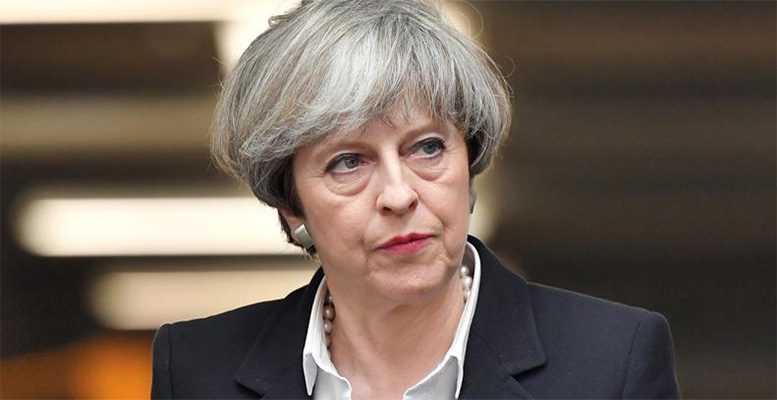Theresa May will remain Prime Minister with 313 seats but far off the 326 needed to have a majority and negotiate a hard Brexit. That said, the Conservatives could probably count on the support of ten unionists from Northern Ireland. Jeremy Corbyn’s Labour party won 261 seats, which means 29 more than in the last elections, but with no possibilities of forming a government.
After this dramatic results, a wounded May has signaled she will fight on, despite losing her majority in the House of Commons. Her Labour rival Corbyn has said she should step down.
Citi Research analysts commented on a brief note early this morning that they expect May were likely to resign at her speech at around 10 p.m as “her political gamble has backfired, as the early General Election has yielded a hung parliament.” Yet she finally said it is her party’s responsibility to now try and ensure the country’s stability ahead of Brexit talks.
The perception that a government cannot last five years with these numbers raises the risk of a breakdown in the government or new elections.The question is that calls for May to resign are already coming from within her own party, the problem who could replace May. Davies, Johnson, Rudd? It would not be easy as “two of these three names are associated with ‘harder Brexit’ positions,” explains from Exane BNP Paribas.
Negotiations for the UK’s exit from the European Union are due to start in just 10 days’ time. The hung Parliament makes both a “soft” Brexit (staying in the Single Market) and a chaotic Brexit (no deal ) more likely than before. In opinion of Citi’s analysts a hard-but -smooth” Brexit remain their base case. They explain:
The UK’s decision to leave the EU is irreversible under Article 50 (although the ECJ may have to rule on this ). Extending the Article 50 pr ocess requires a unanimous vote of EU countries , but EU countries may not want the resource -intensive process to drag on for longer.
Labour leader Jeremy Corbyn will be strengthened by the result, but as his party will not be in government, his plans to nationalize key industries, raise taxes and spending and tighten labour laws will not be implemented, avoiding economic uncertainty. In addition, the weak result for the SNP from 56 to 35 seats in Scotland further undermines the momentum for another independence vote.
The pound was headed for the biggest drop in a year: it slumped 1.8 percent to $1.2717 at 7:16 a.m. London time on Friday, after hitting $1.2686, its lowest level since April 18.





